Showing 1-15 of 145 results

Health Lab
When white blood cells, meant to protect the body from infection, are overly activated, they eject their DNA into nets, further disrupting the immune system and making patients more likely to develop a potentially severe reaction to immunotherapy.
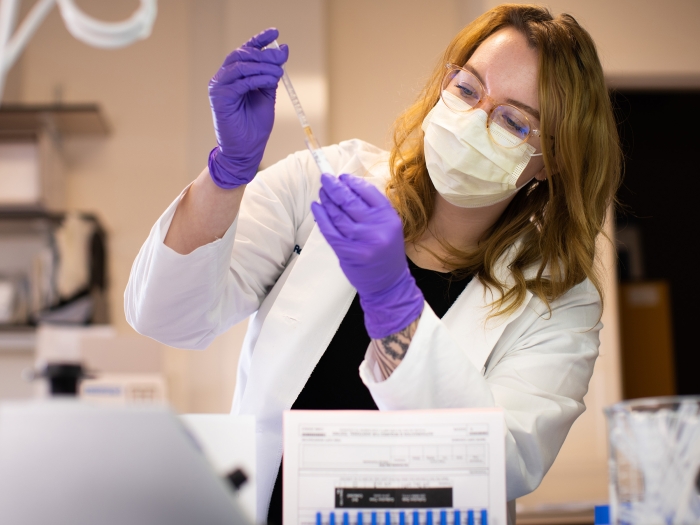
Health Lab
Changing how often a popular cancer therapy is delivered would reduce greenhouse gas emissions and improve environmental impact without decreasing cancer survival, according to a new analysis from researchers at the University of Michigan Health Rogel Cancer Center.

Health Lab
Youth with heart disease enrolled in unique program that teaches resilience and builds connections with their peers
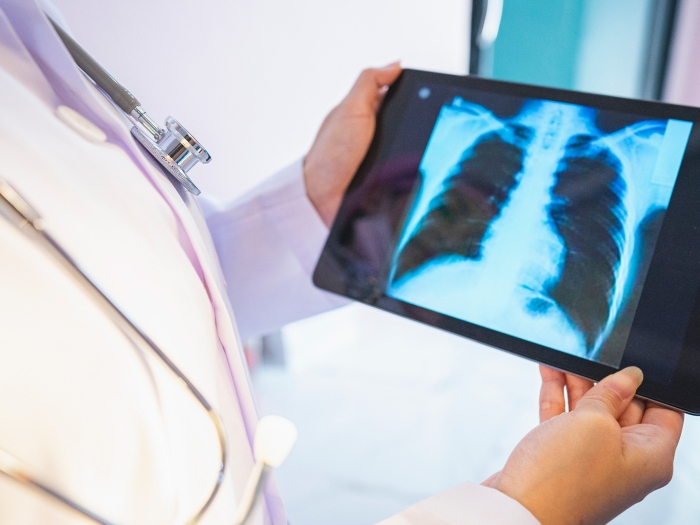
Health Lab
Researchers uncovered nine elements that have significant effects on a whether a patient may develop pneumonia, with nearly 20% of patients moving into a higher risk category based on what occurred during or following the surgery.

Health Lab
The newest version of the heparin reversal drug, described in a recent issue of Advanced Healthcare Materials, adjusted the number of protons bound to it, making the molecule less positive so it would preferentially bind to the highly negative heparin, resulting in a much safer drug.

Health Lab
A team of researchers have spent the past eight years looking at better ways to transport organs for donation, specifically hearts, to improve the number of organs that can be used for transplants. They found that using a modified normothermic perfusion system heart preservation was feasible for up to 24 hours.

Health Lab
A melanoma survivor shares facts and tips about preventing all types of skin cancer.
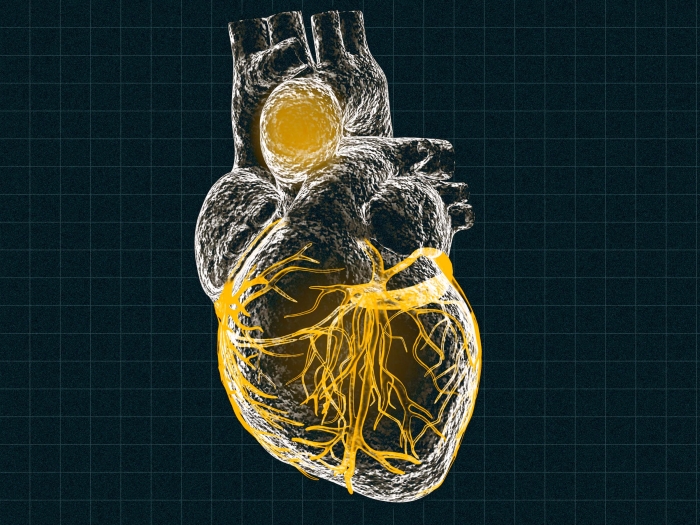
Health Lab
Using human cells in an animal body, a team of researchers has developed a functional model of thoracic aortic aneurysm, creating opportunities for more effective understanding of disease development and treatments for the potentially fatal condition.
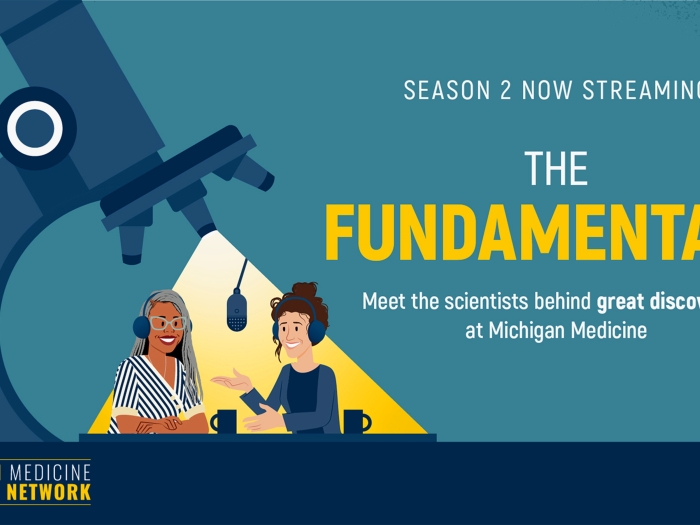
Medical School News
In the second season of The Fundamentals podcast, co-hosts Kelly Malcom and Jordan Goebig talk to several leading experts from the Medical School about their fields and the fundamental questions they are trying to answer — and discover why U-M is such an amazing place for research. Six new episodes of the popular podcast were released on May 6

Health Lab
The availability of clinical trials of new treatments for cancer varies greatly by geography, and a new study shows more socially vulnerable areas have far fewer.
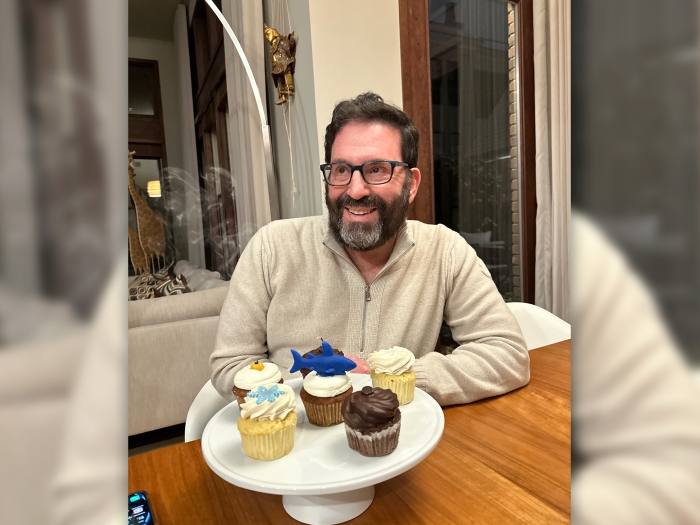
Health Lab
A patient who has received two heart transplants years apart shares his story and the importance of advocating for organ donation.

The Fundamentals
Today on The Fundamentals is Dr. Maria Castro, the R.C. Schneider collegiate professor of neurosurgery, and a professor of cell and developmental biology at the University of Michigan Medical School. Her research program aims to develop immunotherapies for primary and metastatic brain cancer, studying basic immune biology mechanisms leading to clinical implementation. She has been inducted into the American Association for the Advancement of Sciences, the Latin American Academy of Sciences, and the American Institute for Medical and Biological Engineering College of Fellows. She has won numerous awards for her contributions to basic science and cancer research and is a diversity ambassador for the Cancer Biology Graduate Training Program.
You can learn more about Dr. Castro here, and you can follow her @castro2355_mg, the Rogel Cancer Center @UMRogelCancer, the department of neurosurgery @umichneuro, Michigan Neurscience Institute @UM_MNI and the department of cell and developmental biology @UMCDB on X
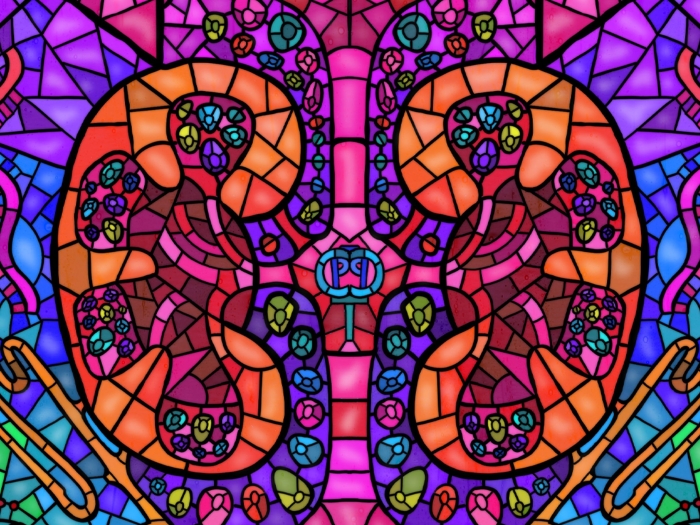
Health Lab
A study led by University of Michigan Health Rogel Cancer Center researchers identifies novel biomarkers in renal cell carcinomas.
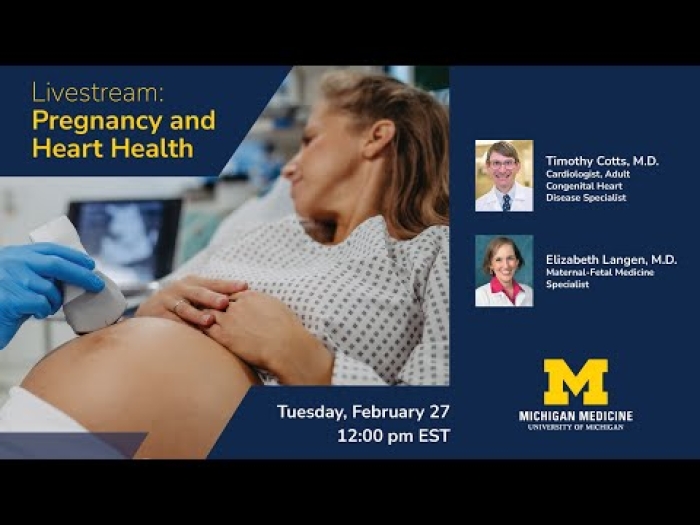
Health Lab
Experts discuss pregnancy and heart health.